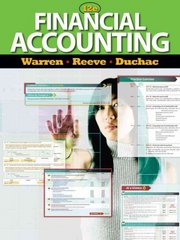Question
1. On first April, an open finished plan of shared asset had 300 millions units remarkable with Net Resources Value (NAV) of $18.95. Toward the
1. On first April, an open finished plan of shared asset had 300 millions units remarkable with Net
Resources Value (NAV) of $18.95. Toward the finish of April, it gave 6.87 millions units at opening NAV
also 2.98% burden, adapted to profit leveling. Toward the finish of May, 9.98 millions units were
repurchased at opening NAV less 2.56% leave load adapted to profit adjustment. At the
end of June, 7.9% of its accessible pay was conveyed.
In regard of April-June quarter, the accompanying extra data are accessible:
' in millions
Portfolio esteem appreciation 987.47
Pay of April 22.950
Pay for May 34.425
Pay for June 45.450
You are needed to ascertain
(I) Income accessible for dispersion;
(ii) Issue cost toward the finish of April;
(iii) repurchase cost toward the finish of May; and
(iv) net resource esteem (NAV) as on 30th June.
2. Which of coming up next isn't accurate with reference capital planning?
(a) Capital planning is identified with resource substitution choices,
(b) Cost of capital is equivalent to least required return,
(c) Existing interest in a venture isn't treated as sunk expense,
(d) Timing of incomes is pertinent.
3. Which of coming up next isn't continued in capital planning?
(a) Cash streams Principle,
(b) Interest Exclusion Principle,
(c) Accrual Principle,
(d) Post-charge Principle.
4. Devaluation is consolidated in incomes since it:
(a) Is unavoidable expense,
(b) Is an income,
(c) Reduces Tax risk,
(d) Involves a surge.
5. Which of coming up next isn't valid for capital planning?
(a) Sunk expenses are disregarded,
(b) Opportunity costs are barred,
(c) Incremental incomes are thought of,
(d) Relevant incomes are thought of.
6. Which of coming up next isn't applied in capital planning?
(a) Cash streams be determined in gradual terms,
(b) All expenses and advantages are estimated on cash premise,
(c) All accumulated expenses and incomes be joined,
(d) All advantages are estimated on after-charge premise.
7. Assessment of Capital Budgeting Proposals depends on Cash Flows in light of the fact that:
(a) Cash Flows are not difficult to figure,
(b) Cash Flows are recommended by SEBI,
(c) Cash is a higher priority than benefit,
(d) None of the abovementioned.
8. Which of coming up next is excluded from gradual A streams?
(a) Opportunity Costs,
(b) Sunk Costs,
(c) Change in Working Capital,
(d) Inflation impact.
9. A proposition is certifiably not a Capital Budgeting proposition on the off chance that it:
(a) is identified with Fixed Assets,
(b) brings long haul benefits,
(c) brings transient advantages as it were,
(d) has enormous speculation.
10. In Capital Budgeting, Sunk expense is prohibited on the grounds that it is:
(a) of limited quantity,
(b) not gradual,
(c) not reversible,
(d) All of the abovementioned.
Step by Step Solution
There are 3 Steps involved in it
Step: 1

Get Instant Access to Expert-Tailored Solutions
See step-by-step solutions with expert insights and AI powered tools for academic success
Step: 2

Step: 3

Ace Your Homework with AI
Get the answers you need in no time with our AI-driven, step-by-step assistance
Get Started


